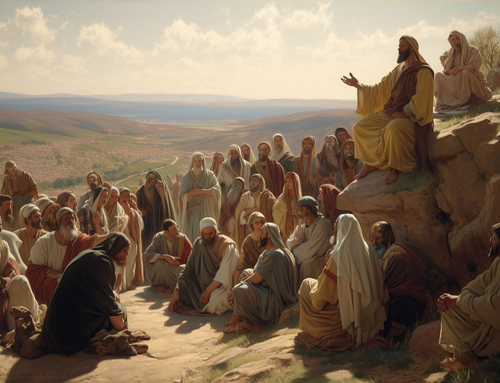In reply Jesus said: “A man was going down from Jerusalem to Jericho, when he was attacked by robbers. They stripped him of his clothes, beat him and went away, leaving him half dead. A priest happened to be going down the same road, and when he saw the man, he passed by on the other side. So too, a Levite, when he came to the place and saw him, passed by on the other side. But a Samaritan, as he traveled, came where the man was; and when he saw him, he took pity on him. He went to him and bandaged his wounds, pouring on oil and wine. Then he put the man on his own donkey, brought him to an inn and took care of him. The next day he took out two denarii[e] and gave them to the innkeeper. ‘Look after him,’ he said, ‘and when I return, I will reimburse you for any extra expense you may have.’ – Luke 10:30-35
The above verses are known as the Parable of the Good Samaritan. It’s one of Jesus’ more well-known teachings. Even many non-believers are familiar with the story and see it as a commentary on the kindness of strangers. When you’re down you never know who might be the one to help you up. Likewise, when someone else is down, you don’t have to know them to be the one to help them up.
That’s certainly a good interpretation of the parable, and Jesus likely wanted people to get that meaning from the story too. However, as is often the case when portions of Biblical teachings are plucked from the larger context, that interpretation leaves out some of the parable’s meaning. What some people miss is that this parable was Jesus’ answer to an important question.
But he wanted to justify himself, so he asked Jesus, “And who is my neighbor?” – Luke 10:29
Jesus taught that all of the Law could be condensed into two main commandments, one of which is to love your neighbor (Mark 12:31 for example). It’s probably common for people to read the Bible and wonder what it means when it talks about a person’s neighbor.
“Which of these three do you think was a neighbor to the man who fell into the hands of robbers?” The expert in the law replied, “The one who had mercy on him.” Jesus told him, “Go and do likewise.” – Luke 10:36
When we look at the parable in full context and with a little Biblical understanding, it becomes clear that its meaning is deeper than typically acknowledged. For the Hebrews, Samaritans were outsiders. It wasn’t simply that the Samaritan in the parable was a stranger, he was a member of a group that would not have been expected to care about a Hebrew in need. From our standpoint, of the three people that came in contact with the distressed man, the Samaritan should have been the one that wouldn’t have been considered a neighbor, yet he is the one that Jesus confirms was the neighbor.
The real purpose of the parable is to drive home that God doesn’t care about our human divisions. When he tells us to love our neighbors, he’s telling us that we should care about everyone. It doesn’t matter if they fit squarely in whatever tribe we claim or not. Whether we hear about a tragedy two doors down from where we live or on the other side of the world, we should care the same, and if we can be of help in some way, we should do what we can in either scenario. Christians are supposed to display the love of God, and our neighbors are anyone to which we can show that love.
Part of being a Christian means rising above the petty limitations and restrictions we humans put on ourselves and trying to see the world more like God sees it. When we can do that, we’ll not only be able to better understand what He’s telling us through the Bible, but we’ll be better at applying it to our everyday lives.






